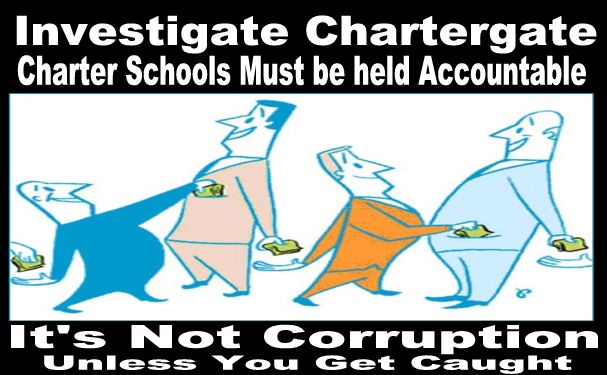The Charter School Business
And how to keep it from being the charter school racket: An interview with Bruce Baker.
Rachel M. Cohen is a writing fellow at The American Prospect
Rutgers University professor Bruce Baker is a longtime expert on charter schools, which are in the crosshairs of a nationwide debate over school performance standards. Recently, Baker, and his colleague Gary Miron,authored a study about the ways in which individuals, companies, and organizations profit through laws and regulations governing the charter school sector. In an interview with The American Prospect, Baker discusses some of the most egregious policy problems, and steps that governments could take to fix them. What follows is an edited transcript.
Rachel Cohen: Your report explores what you call, “The Business of Charter Schooling.” Has this been studied much before?
Bruce Baker: I don't think it's been systematically studied because I don't think there are many unified data sources for this information—it’s more like investigative reporting. I had been repeatedly asked to look into charter school real estate deals and things like that but getting good data just isn't easy. This was really just a first cut at summarizing the business practices and financial transactions occurring in the charter sector, and what policy structures encourage or permit these things to happen.
RC: You say that current laws and policies governing charters are increasing the privatization of public schooling. What do you mean?
BB: I want to be careful on this issue of ‘privatization’ because I don't think the intent of our report was to say that public policy is promoting privatization, or that privatization is necessarily bad or good. But there is a long line of case law that carefully parses under what circumstances, and in what settings, certain activities of charter schools are public or private. I’ve coauthored law review articleswhere we discuss extensively how the charter school industry claims it is “private” when dealing with questions of employee rights, student discipline policies, student handbooks, or contracts, and “public” in other respects.
The idea put forth in our report is that there are certain policy structures, and in some cases lack of policy controls, that are permitting more extensive degrees of privatization in some states. Sometimes it just makes business sense for charter operators, good or bad, or it affords them a way to do something more quickly or cheaply. But I think that some actors in the charter world such as Imagine Schools, White Hat, and Charter Schools USA, are taking advantage of these opportunities in ways that are self-enriching and not in the public interest.
RC: What are some examples?
BB: Sometimes charter providers take actions that are illogical and inefficient from a public policy standpoint, but it might simply be what they have to do to get by. For example, sometimes charter providers create third-party entities, and then pay rent for the school facilities to these new entities. Since charters can't directly The Charter School Business:



